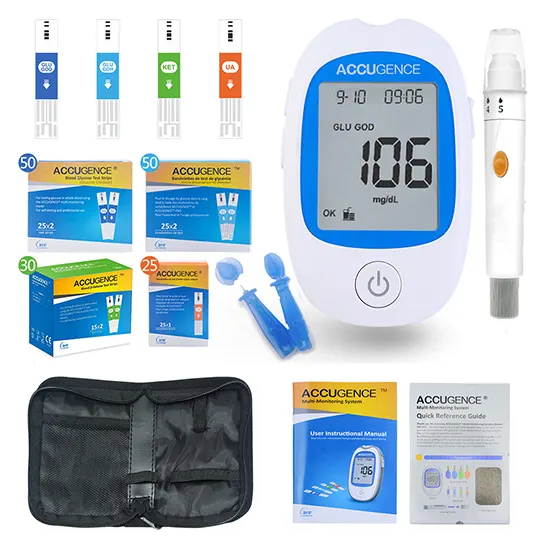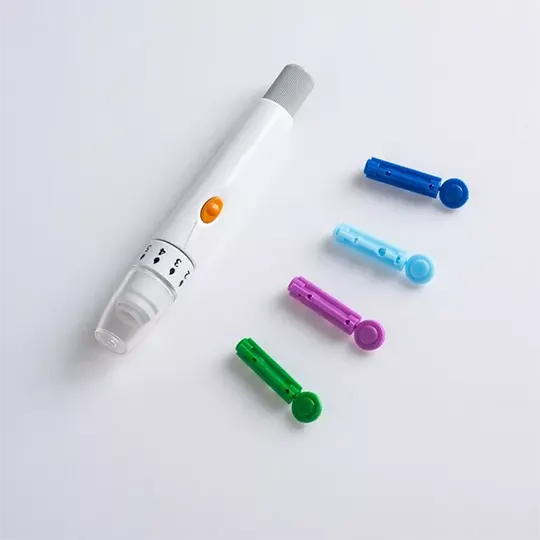Bricyn
Bricyn - General Information
A selective beta-2 adrenergic agonist used as a bronchodilator and tocolytic.
Pharmacology of Bricyn
Bricyn is a relatively selective beta2-adrenergic bronchodilator. The pharmacologic effects of beta adrenergic agonist drugs, including terbutaline, are at least in part attributable to stimulation through beta adrenergic receptors of intracellular adenyl cyclase, the enzyme which catalyzes the conversion of adenosine triphosphate (ATP) to cyclic- 3',5'- adenosine monophosphate (c-AMP). Increased c-AMP levels are associated with relaxation of bronchial smooth muscle and inhibition of release of mediators of immediate hypersensitivity from cells, especially from mast cells.
Bricyn for patients
Patient Information:
Tell you doctor if you have unusual reaction to albuterol, ephedrine, epinephrine, isoproterenol,
metaproterenol, or terbutaline. Also let the doctor know if you are pregnant or breast-feeding.
Older patients maybe more sensitive to Terbutaline than the patients of other age groups. If you
experience signs or symptoms, such as trambling, high bllod pressure, or fast/irregular heartbears,
you should contact you doctor as soon as possible.
Some medical conditions may affect the use of terbutaline. Tell you doctor if you have any of the
following medical problems:
- seizure
- diabetes mellitus
- gastrointestinal narrowing
- enlarged prostate
- glaucoma
- high bllod pressure
- overactive thyroid
- Parkinson's disease
- psychiatric problems
- reduced blood fow to the brain or heart
- arrhythmia
Bricyn Interactions
Drug Interactions:
The concomitant use of Terbutaline with other sympathomimetic agents is not recommended, since the combined
effect on the cardiovascular system may be deleterious to the patient.
Monoamine Oxidase Inhibitors or Tricyclic Antidepressants:
Terbutaline should be administered with extreme caution to patients being treated with monoamine oxidase
inhibitors or tricyclic antidepressants, or within 2 weeks of discontinuation of such agents, since the
action of terbutaline on the vascular system may be potentiated.
Beta-Blockers:
Beta-adrenergic receptor blocking agents not only block the pulmonary effect of beta-agonists,
such as Terbutaline, but may produce severe bronchospasm in asthmatic patients. Therefore, patients with asthma
should not normally be treated with beta-blockers. However, under certain circumstances, e.g., as prophylaxis
after myocardial infarction, there may be no acceptable alternatives to the use of beta-adrenergic blocking
agents in patients with asthma. In this setting, cardioselective beta-blockers could be considered, although
they should be administered with caution.
Diuretics:
The ECG changes and/or hypokalemia that may result from the administration of nonpotassium-sparing
diuretics (such as loop or thiazide diuretics) can be acutely worsened by beta-agonists, especially when the
recommended dose of the beta-agonist is exceeded. Although the clinical significance of these effects is not
known, caution is advised in the coadministration of beta-agonists with nonpotassium-sparing diuretics.
Bricyn Contraindications
Brethine is contraindicated in patients known to be hypersensitive to sympath-omimetic amines or any component of this drug product.
Additional information about Bricyn
Bricyn Indication: For the prevention and reversal of bronchospasm in patients 12 years of age and older with asthma and reversible bronchospasm associated with bronchitis and emphysema.
Mechanism Of Action: The pharmacologic effects of terbutaline are at least in part attributable to stimulation through beta-adrenergic receptors of intracellular adenyl cyclase, the enzyme that catalyzes the conversion of adenosine triphosphate (ATP) to cyclic AMP. Increased cyclic AMP levels are associated with relaxation of bronchial smooth muscle and inhibition of release of mediators of immediate hypersensitivity from cells, especially from mast cells.
Drug Interactions: Not Available
Food Interactions: Not Available
Generic Name: Terbutaline
Synonyms: Terbutalina [Dcit]; Terbutaline Sulfate; Terbutalino [Inn-Spanish]; Terbutalinum [Inn-Latin]; Terbutalin
Drug Category: Adrenergic beta-Agonists; Tocolytic Agents; Bronchodilator Agents; Sympathomimetic
Drug Type: Small Molecule; Approved
Other Brand Names containing Terbutaline: Brethaire; Brethine; Brican; Bricanyl; Bricar; Bricaril; Bricyn;
Absorption: Not Available
Toxicity (Overdose): Terbutaline Sulfate: Oral LD50(rat) = 8.7 g/kg; Oral LD50(mouse) = 205 mg/kg; Oral LD50(dog) = 1.5 g/kg; IP LD50(rat)= 220 mg/kg; IP LD50(mouse) = 130 mg/kg; Oral LD50(rabbit) = >8 g/kg; IV LD50(mouse) = 36 mg/kg; IV LD50(dog) = 116 mg/kg; IV LD50(rabbit) = 110 mg/kg
Protein Binding: Not Available
Biotransformation: Not Available
Half Life: 5.5-5.9 hours
Dosage Forms of Bricyn: Aerosol, metered Respiratory (inhalation)
Chemical IUPAC Name: 5-[2-(tert-butylamino)-1-hydroxyethyl]benzene-1,3-diol
Chemical Formula: C12H19NO3
Terbutaline on Wikipedia: https://en.wikipedia.org/wiki/Terbutaline
Organisms Affected: Humans and other mammals




